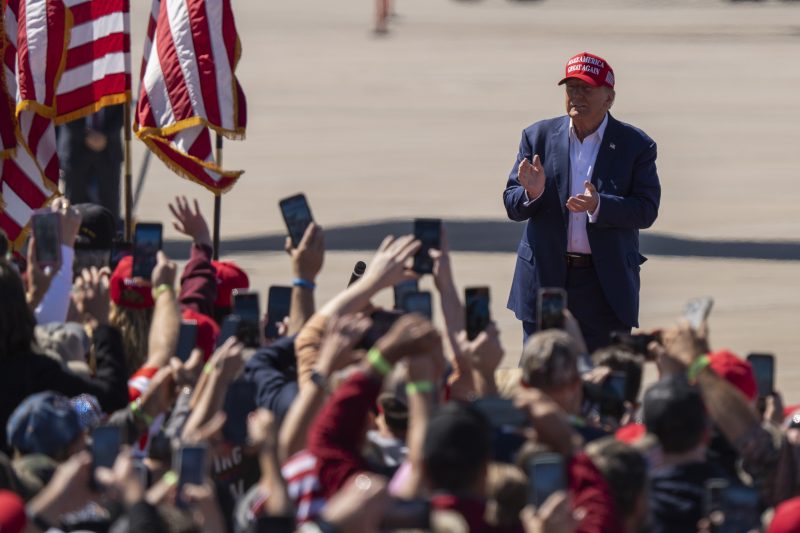
Trump’s Charm Divide: Gender Gap Revealed in Polls on Women’s Views
In a recent interview, former president Donald Trump boldly claimed that women love him, despite the widespread perception of a gender gap in his approval ratings. This assertion comes at a time when the political landscape remains deeply divided, with attitudes towards Trump serving as a litmus test for partisanship and identity.
It is no secret that Trump’s presidency was marked by controversies and polarizing policies. From his inflammatory rhetoric to his handling of major issues like immigration and healthcare, he has consistently drawn both fervent support and fierce opposition. This sharp divide in public opinion has spilled over into perceptions of Trump among women, with many viewing him as a figure who embodies patriarchal values and traditional gender roles.
Polling data indeed suggest that there is a notable gender gap in how men and women view Trump. While his approval ratings among male voters have remained relatively stable, female voters are significantly less likely to support him. This divide speaks to larger trends in American politics, reflecting broader gender disparities in both attitudes towards candidates and policy preferences.
The question of why Trump believes women love him despite evidence to the contrary is a complex one. It could be argued that his self-assurance and propensity for bold statements are part of his larger brand as a political figure. Trump has long cultivated an image of brash confidence and bravado, and his assertion that women adore him may be seen as an extension of this persona.
Moreover, Trump’s appeal to women may be rooted in his messaging around issues such as the economy and national security. For some female voters, his focus on job creation and combating terrorism resonates more strongly than his behavior or rhetoric. Additionally, Trump’s efforts to court female supporters through initiatives like the Women for Trump coalition reflect a calculated strategy to broaden his base of support.
Ultimately, the debate over whether women truly love Trump is emblematic of the ongoing cultural and political tensions in the United States. As the country grapples with questions of leadership, identity, and power, figures like Trump will continue to shape public discourse and challenge prevailing norms and values. The gender gap in opinions about Trump is just one manifestation of these deeper divides, highlighting the complexities of gender, politics, and public opinion in the modern era.
